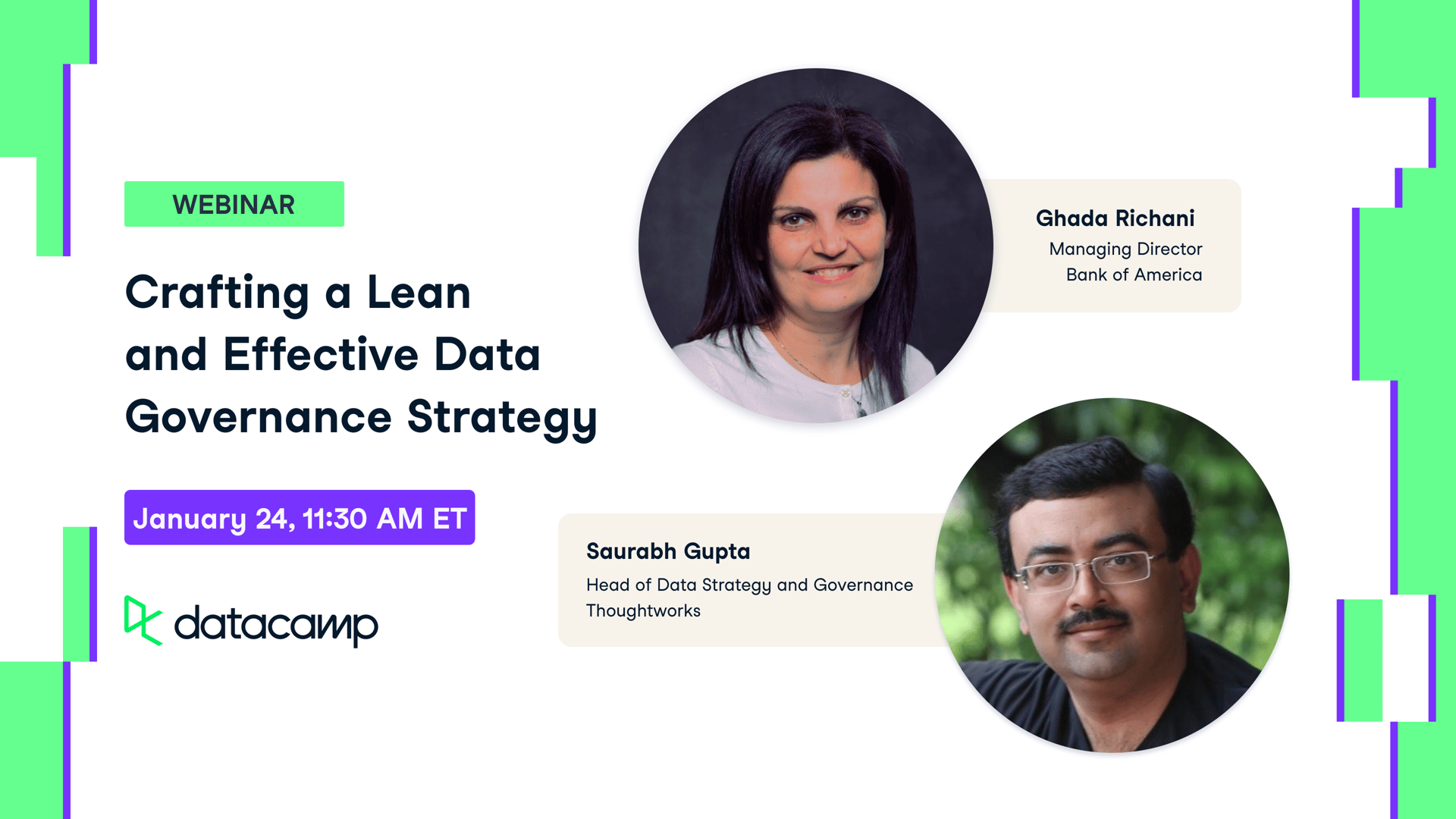Pular para o conteúdo principalSaiba Mais





Falantes
Treinar 2 ou mais pessoas?
Obtenha acesso à biblioteca completa do DataCamp, com relatórios, atribuições, projetos e muito mais centralizadosRelacionado
webinar
Unpacking the Fun in Data Governance: The Key to Scaling Data Quality
In this webinar, Tiankai Feng, Head of Data Strategy & Data Governance at Thoughtworks Europe, will walk you through the objectives, concepts, and best practices of setting up effective data governance programs.webinar
Unpacking the Fun in Data Governance: The Key to Scaling Data Quality
In this webinar, Tiankai Feng, Head of Data Strategy & Data Governance at Thoughtworks Europe, will walk you through the objectives, concepts, and best practices of setting up effective data governance programs.webinar
From Data Governance to Data Discoverability: Building Trust in Data Within Your Organization
In this session, industry leaders share strategies for improving data quality, fostering a culture of trust around data, and balancing robust governance with the need for accessible, high-quality data.webinar
Building a Data Strategy: Key Steps for Aligning Data with Business Goals
Libba Stanford, a Data Strategy Consultant at The K2G Group, covers how to understand business objectives, assess data maturity, and define a data strategy that is aligned with the organization’s overall objectives.webinar
5 Things Every Business Leader Needs to Know About Data Strategy
Find out the 5 key aspects of data strategy across different industries.webinar
Developing a Data Mindset: How to Think, Speak, and Understand Data
In this webinar, Jordan Goldmeier teaches you the secrets of how "data head"'s minds work.Join 5000+ companies and 80% of the Fortune 1000 who use DataCamp to upskill their teams.
Loved by thousands of companies


